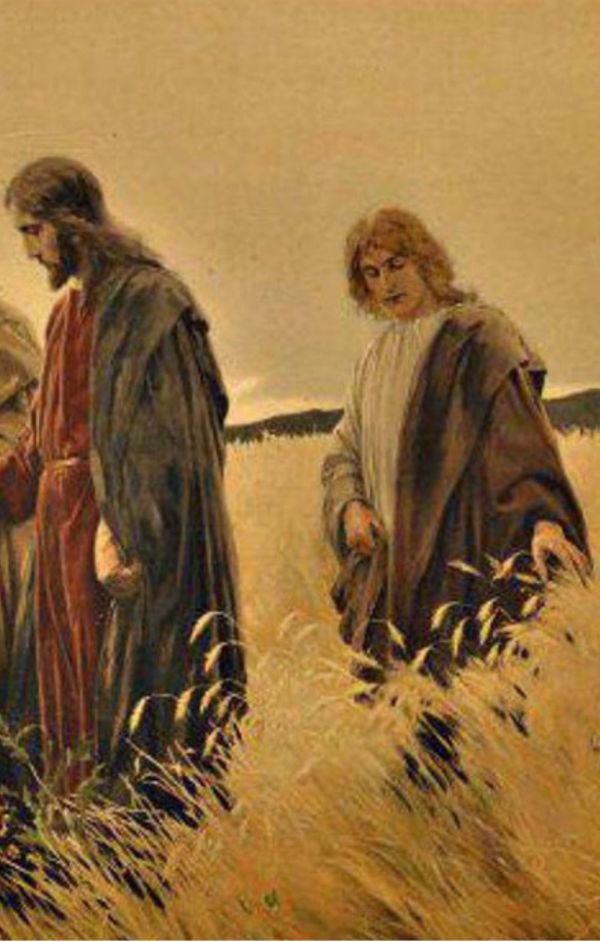Incarnation, or emptiness of humanity
(Mt 12:1-8)
On the conversion’s journey, conflicts of conscience are not parentheses or accidents of the path, but crucial knots.
The genuineness of believing then generates implicative strenght and new expressive abilities.
The alternative is between Intimacy and practice of Faith, or religion that condemns people without fault (v.7):
According to ordinary religious assessments, the legislation was worth more than hunger... but God’s experience in the life overturns ideas elaborated by experts.
To be honest, observance of the Sabbath had become a central law not because of theological subtleties, very well because in the period of the Exile the weekly rest had allowed believers to gather, share hopes, encourage each other, maintain the identity of the people.
But legalism ended up stifling the spirit of the day of worship, once a sign of a freedom in the service of people’s faith and happiness.
Thus where Jesus arrives, every spiritual module empty of humanity crumbles, and the Incarnation takes hold: the place where God and man seriously ‘rest’ [other than the saturday!].
Therefore the Lord quotes the prophet Hosea, a man with a raw experience, but who clearly defines the summit of intimacy with God: an authentic Rite is to realize the needs of our neighbour and to have the heart in the others’ hopes.
The archaic «sacrifice» [‘sacrum-facere’, making sacred] reflected an idea of cutting, separation and distance between the perfect world of "heaven" and the profane existence of people.
But after the coming of the «Son of Man» (v.8) the new consecrated persons will not live far from the day-to-day existence.
Rather, they will be the first to welcome and relieve those in need.
Sign of the Covenant with God, and Encounter [authentic sanctification] is an ‘adherence’ that continues in the plot of days.
After the Messianic Hymn of Jubilation and the «Gladness of the Simple» that supplants the «yoke» of the ancient religion (Mt 11:25-30), the Master presents himself to the Pharisees in the (stand-in) regal guise of David, who sets out to conquer the alternative Kingdom, even with a small handful of followers.
To the slavery of customs, Christ opposes a looseness that makes the encounter between God and his people more agile, more spontaneous, richer and more personal.
A trail of light - even for us - in the face of the current pastoral collapse (despite the plethora of structures on the ground!).
In the time of the global crisis that seems to mortgage the future [and there is still an attempt to calculate it by directing it a priori, according to selective interests] the challenge is more open than ever.
To internalize and live the message:
How did you perceive that you were reliving Christ in the fluency of the norms?
[Friday 15th wk. in O.T. July 19, 2024]












